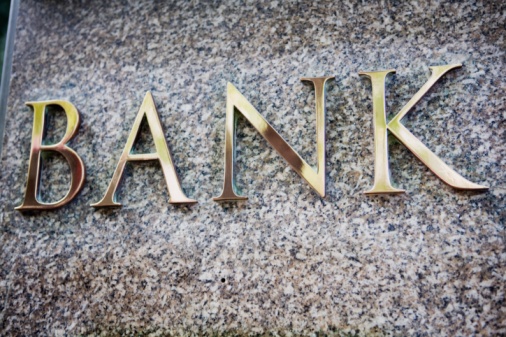Banking, finance, and taxes
Weak Trading and Lower Investment Banking Revenues May Hurt These Banks
Published:
The good old days for bulge bracket banks on Wall Street are in the rear-view mirror, especially when it comes to trading revenues and proprietary desk trading. Add in a drop in investment banking revenue at four of the five major Wall Street Banks, and something may start to give when second-quarter numbers hit next month. A new report from UBS dissects all the revenue streams for the big banks, and one thing is for sure, the pie that used to be pretty huge around the street is shrinking. The question is, who will get hurt the worst?
Here are the five top banks on Wall Street when it comes to dominating revenue categories. The UBS team suspects that the soft conditions could lead to further cost cutting as the year progresses, but they doubt any cuts will lead to substantial changes to business models for the top investment banks.
Bank of America Corp. (NYSE: BAC) has not gotten much love from Wall Street lately. The company is in a much better situation than last year. Earnings are much more consistent, capital has improved and a bigger dividend and share repurchase effort seems very likely next year. Worries over more fines and sanctions still hover over the bank, and its reporting issues are a cloud as well. The dividend for investors is a paltry 0.3%. UBS rates the stock Neutral and has lowered earnings estimates for the second quarter and 2014. The price target for the stock is $16.50. The Thomson/First Call consensus target is $17.23. The stock closed Friday at $15.59 a share.
ALSO READ: Twelve Analyst Stocks to Buy Under $10 With Huge Implied Upside
Citigroup Inc. (NYSE: C) has been a poor performer this year for investors, down more than 10% year-to-date. The bank trades at an incredible 9.5 times forward earnings, but it is still losing the trading revenue battle. The bank’s total equity capital markets revenue has also dropped year-over-year. Investors are paid a small 0.1% dividend. UBS has a Buy rating on the stock and a $61 target. The consensus target is $58.28. Citigroup closed Friday at $48.93
Goldman Sachs Group Inc. (NYSE: GS) remains the premier bank on Wall Street, but the UBS rating for the stock is Neutral. The company has been very vocal lately when commenting on guilty pleas from banks that it does business with. In fact, CEO Lloyd Blankfein said guilty pleas by foreign banks could affect its relationships with them, saying the impact “depends on the consequences of the guilty pleas.” While still a prime purveyor of initial public offerings, the company’s year-over-year revenue for the high-profile transactions is expected to drop. Investors are paid a 1.4% dividend. The UBS price target for this ultimate white-glove firm is $174. The consensus target is $175.21. The stock closed Friday at $166.19.
JPMorgan Chase & Co. (NYSE: JPM) is one of the top three bulge bracket banks to buy at UBS. The company may be nearing the end of a very long stretch of losses and penalty pay-outs. Between mortgage settlements and trading gaffes, the company has taken a PR beating and has still held up well. The mega-cap bank is expected to benefit from commercial loan growth and an upturn in capital spending. This may help offset lower trading and capital markets revenue. Investors are paid a solid 2.8% dividend. The UBS price target is $66, and the consensus is at $64.20. Shares ended Friday at $53.83.
ALSO READ: Five Analyst Stock Picks With 100% or More Implied Upside
Morgan Stanley (NYSE: MS) rounds out the top five bulge bracket banks and is also rated Buy at UBS. The company was the only firm to see a year-over-year increase in investment banking revenue, up 6% quarter versus quarter, and the UBS team also expects total revenues to be 11% versus last year. Investors are paid a 1.3% dividend. The UBS price target for the stock is $32, and the consensus stands higher at $34.42. Morgan Stanley closed Friday at $31.95.
One question always comes to mind when overall revenue shrinks: could there be consolidation? With a very poor view of huge banks in general by regulators, politicians and citizens, and the whole “too big to fail” worries that have hovered since the recession, consolidation seems unlikely. However, that does not mean that one of these banks would acquire a smaller super regional or similar asset to generate revenue growth.
Retirement can be daunting, but it doesn’t need to be.
Imagine having an expert in your corner to help you with your financial goals. Someone to help you determine if you’re ahead, behind, or right on track. With SmartAsset, that’s not just a dream—it’s reality. This free tool connects you with pre-screened financial advisors who work in your best interests. It’s quick, it’s easy, so take the leap today and start planning smarter!
Don’t waste another minute; get started right here and help your retirement dreams become a retirement reality.
Thank you for reading! Have some feedback for us?
Contact the 24/7 Wall St. editorial team.